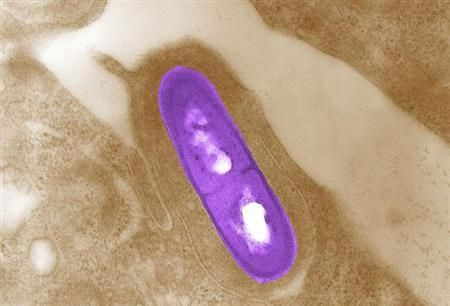
The Louisiana-based Manda Packing Company has issued a recall of meat products after Tennessee Department of Agriculture officials found that a Manda cooked roast beef sample bought from a retail store on April 5 was infected with the bacteria Listeria monocytogene. The recall includes 468,000 pounds of roast beef, ham, turkey breast, tasso park, ham shanks, hog headcheese, corned beef and pastrami. Sausage products sold by the company were apparently not tainted, as they were produced at a separate facility. The website Consumer Affairs has posted a complete list of the recalled products, sell-by dates and establishment numbers, though some of the products may have been sliced at retail delis, and as such would not bear packaging information.
Listeria monocytogenes-infected food can cause listeriosis, an uncommon but potentially fatal disease, said the USDA. According to the Center for Disease Control, the disease primarily affects older adults, pregnant women, newborns, and adults with weakened immune systems. It can cause serious to fatal infections as well as high fever, severe headaches, neck stiffness and nausea; in pregnant women it may cause miscarriages, stillbirths, premature deliveries or life-threatening illness in the newborn. No illnesses have been reported from the tainted meat.
The recalled meat had been shipped to retailers in Alabama, Arkansas, Florida, Georgia, Illinois, Kentucky, Louisiana, Mississippi, Missouri, Oklahoma, South Carolina, Tennessee, and Texas. According to a statement on the company's website, it was produced at Manda's facility in Baker, Louisiana between Feb. 27 and April 9.
"We are committed to work with USDA in reviewing and enhancing our food safety system so we can continue to ensure that our products are safe, wholesome and worthy of our brand name," said Josh Yarborough, director of quality assurance for Manda, in a statement on Saturday.
In 2011 a nationwide listeria outbreak killed 30 people in the worst foodborne illness outbreak in the United States since the Center for Disease Control began taking records in the 1970s. Cantaloupes grown at a Colorado farm were found to be the culprit; the pathogen was discovered by inspectors on a conveyor belt and a melon drying area in a shed where the melons were packaged. Days before the outbreak began, the farm had passed a food safety audit by an outside contractor. Most of the 30 people who died after eating the contaminated melons, as well as many of the 146 people who became sick from them, were elderly.
In the case of the Manda Packing Company's recall, no reason has been given as to how the meat may have been contaminated.
© 2025 Latin Times. All rights reserved. Do not reproduce without permission.




